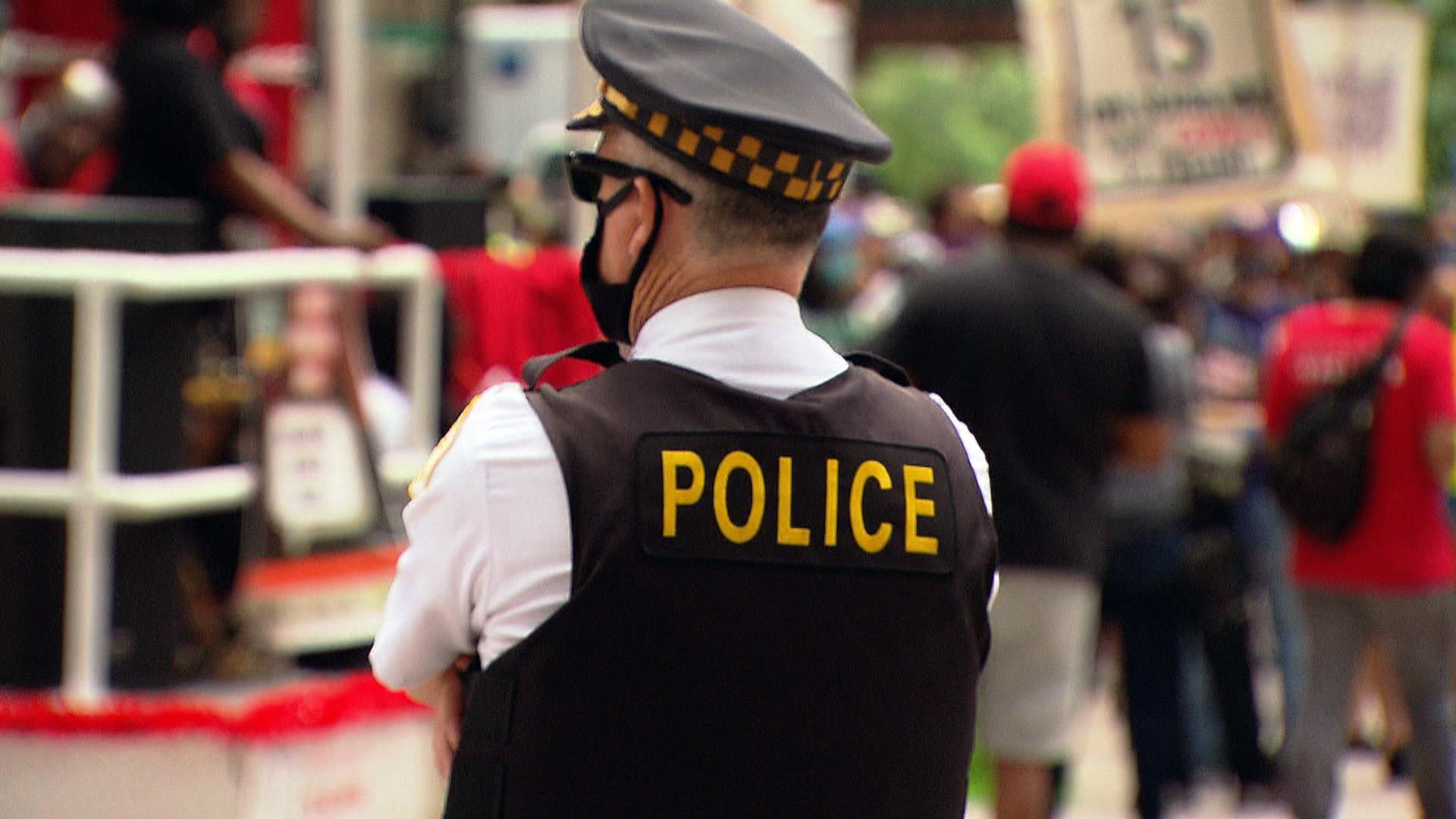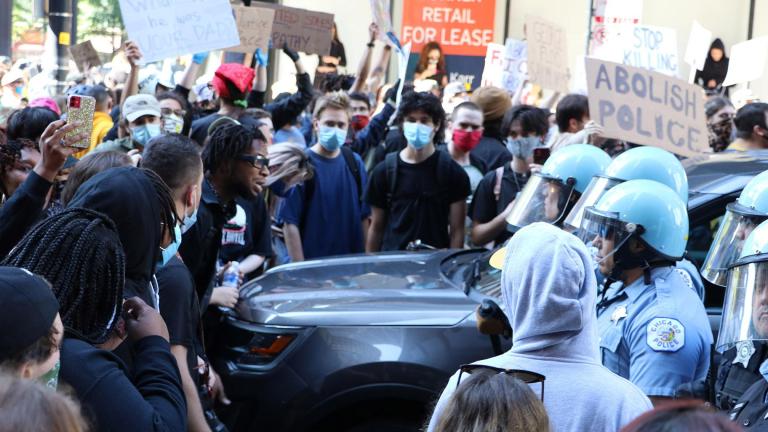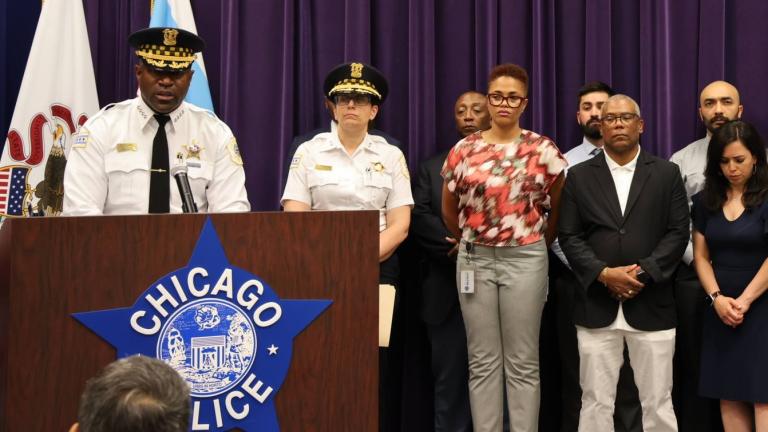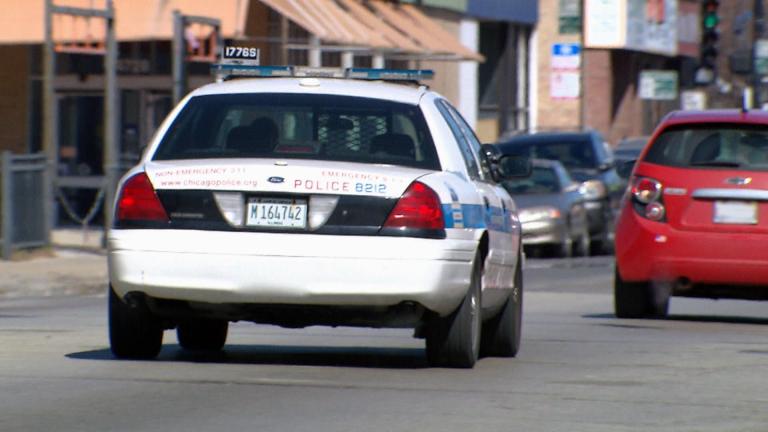 Demonstrators march in Chicago on Wednesday, June 24, 2020, to show their support for removing police officers from schools. (WTTW News)
Demonstrators march in Chicago on Wednesday, June 24, 2020, to show their support for removing police officers from schools. (WTTW News)
The number of homes searched by Chicago Police officers dropped nearly 90% since 2019, the same year a botched raid left social worker Anjanette Young handcuffed while naked and pleading for help, according to new data released by the city’s watchdog.
Chicago Police officers served just 173 residential search warrants in 2022, a six-year low, according to Inspector General Deborah Witzburg’s third and final analysis of the department’s search warrant policies. In comparison, the department executed 1,423 search warrants in 2019.
The analysis also includes the number of search warrants served at the height of the COVID-19 pandemic, when shut-down orders upended policing in Chicago and across the nation and triggered a surge in crime that has yet to fully recede.
Plans by the department to electronically track search warrants, raids and their outcomes are “encouraging,” and could correct at least some of the significant problems that led to nearly two dozen botched raids since 2019, Witzburg said.
“Chicago has learned painful lessons over the last several years about what happens when the search warrants go wrong,” Witzburg said in a statement. “Plainly, CPD and the city must move swiftly on this, an issue which has driven so much distrust.”
Only five warrants served in 2022 were so-called no-knock warrants, which allow officers to enter a home without first announcing their presence, according to the report.
In the wake of the raid on Young’s home, the Chicago Police Department significantly changed how officers serve search warrants and conduct raids, and a revised policy is in the works.
Rules now require bureau chiefs to sign off on any no-knock warrants. They also add steps before, during and after the execution of a search warrant, such as requiring officers to account for the possible presence of children or vulnerable parties and mandating a lieutenant or higher-ranking official is on the scene.
A spokesperson for the Chicago Police Department said officials are working to ensure search warrants and other investigative tools are “used appropriately, fairly and constitutionally as part of our ongoing efforts to grow and maintain trust in the communities we serve.”
The policy now requires that officers “treat all persons with the courtesy and dignity which is inherently due every person and will act, speak, and conduct themselves in a courteous, respectful, and professional manner” while serving search warrants.
Officials must also conduct an independent investigation in order to verify the information used to develop a search warrant prior to its execution. Warrants based on information provided by an anonymous informant also require the approval of a bureau chief.
Chicago’s inspector general released three reports into the use of search warrants by Chicago Police officers since January 2021, after CBS2-TV aired video of the raid of Young’s home in February 2019.
The second report from the inspector general found that approximately 72% of all search warrants served by the Chicago Police Department in homes between 2017 and 2020 targeted Black men.
The final report from Witzburg’s office found that the Police Department’s paper-based system of tracking search warrants was woefully insufficient and led to the botched raid of Young’s home. The city of Chicago paid the social worker $2.9 million to resolve a lawsuit she filed over the raid.
In addition, the Police Department’s poor record keeping “hindered CPD and the public’s ability to measure and understand the issue of wrong raids in Chicago,” according to the inspector general’s report.
A proposal released by department officials in January to again revise its search warrant policy and track raids electronically “are encouraging steps toward increased accountability,” the report said.
However, that electronic system will not be ready until 2024, according to the report.
Chicagoans can offer feedback on the proposed new rules for search warrants until July 10.
Contact Heather Cherone: @HeatherCherone | (773) 569-1863 | [email protected]







